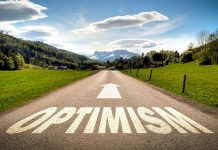Tens of thousands of articles about the new coronavirus crisis are filling news outlets around the world these days. What is the crisis, how can we get through it, and what should we do are some of the questions we find ourselves asking. Only one thing seems certain: our uncertainty about the future. We would like the experts to reassure us: “Stay calm, this will all end in X months. Everything will be fine!” But this is not happening and we feel that the reality we once knew is turning into something we don’t know much about. Yet.
The post-crisis world will be different and many fear that they will no longer be able to retain their current place in it, that they will be economically downsized or that they will become unable to take care of their families. The road that lies ahead is similar, in some ways, to the journey that lay ahead of the emperor’s son from the well-known children’s story—the one who had to go “try his luck”, without knowing what awaited him. In the end, we see how the journey transformed the prince into a hero of his world. We might then ask ourselves: How can we go through this crisis so that even if we do not become the heroes of the new post-COVID-19 reality, we become heroes at least for ourselves and our families?
In seeking an answer to this question, I suggest we go beyond the most immediate perspective of the present—of us wanting to be heroes right now, through empathy and altruism. Let us analyse this crisis like an engineer and anticipate the future just as an engineer would calculate the outcome of a system that he models to his own advantage.
Any system can be defined if we know its input parameters and the system’s response to these parameters. From the moment we have this information, we can say that we have defined the system. Sometimes, if we have the defined system and only know its output, we can calculate what kind of parameters were needed at the input. Other times, if we have the defined system and information about input parameters, we can calculate the type of response. How can this calculation model be applied to our situation?
Well, at the moment, we can consider that we are the input parameters during the COVID-19 period, a system which we do not have enough data about and that we cannot yet define. But we also have some intuition about the output parameters of the system, those that will define us and our reality post-COVID-19.
If, during this time, we simply passively watch what happens to the system, after this period we will wake up to a foreign reality for which we will feel completely unprepared. But we can (and need to) adapt from now on, transforming our mentality. How, exactly? By imagining our reality after the crisis, based on the information we already have and asking ourselves, like the prince in the story, what we need to do in order to become the heroes of that reality.
We already know that an economic crisis is foreshadowed; that it will be followed by a crisis of the digitally-savvy labour force. We also know from previous crises that extraordinary situations produce extraordinary success stories. For example, some companies have succeeded in becoming economic giants just because they anticipated the post-crisis reality at certain key moments. Google and PayPal became heroes in their reality after the dot-com crisis. Airbnb and Uber took the market by storm after the 2008 economic crisis.
What can we do today? We should consider a few things that were observable before COVID-19:
1. Digitalization – More and more interactions in our daily lives, from interactions with the state to interactions with employers, are moving into the online environment.
2. Cyber security – With the transfer of interactions into the online environment, digital data security will become as important as the security of the home we live in.
3. Automation – Repetitive processes will increasingly need to be automated, which means that people will need to focus on aspects of their work that involve idea generation, implementation, vision and strategy.
All these elements of digital transformation have accelerated globally in line with the recommendation to maintain social distance. Schools and universities went online overnight. Where possible, employees work from home. The volume of data transferred online has increased. The number of cyber attacks has increased, but also the sales volume for companies building automation products in various industries. Job offers will increase in e-commerce industries (Amazon recently announced 100,000 jobs will be offered over the next period).
So, what we find, so far, is that we have the input parameters: us and the pre-COVID-19 reality. We can launch a hypothesis about the future, assuming that it will be one where digital transformation will be more widespread in all areas of life. This hypothesis about the future may also include an economic crisis in which those who are digitally literate will have more opportunity than others. Therefore, if we intend to go through this crisis as a system in which we emerge as heroes of the new world, we should begin shaping the crisis and focusing our actions during this period on the following seven pillars:
1. Digital literacy – Let’s try to understand more about what digitalisation means, not at the level of simply browsing on Facebook, but at the level of working with online tools; to learn to carry out tasks that add value, using digital tools.
2. Awareness of our digital twin – Let us pay attention at all times to whom we give our data in the online environment. Our digital twin, or our digital identity, will become extremely important and anyone who manages to acquire our digital data will be able to control our reality in the online environment.
3. Transforming skills – Let us update our competence in the workplace, from one based on the mechanical fulfillment of repetitive processes to one based on providing specialised consultation at the level of ideas, vision, and innovative strategies.
4. Automation – We can use automation tools to program them to perform the repetitive tasks we did in the past.
5. Flexibility and adaptability – Let us develop flexibility by readily adapting to the new context, and exercise as much initiative as possible in order to differentiate qualitatively from an intelligent algorithm.
6. Complementary lifelong learning – Let’s try to have a modular approach to lifelong learning and be willing to add new skills to the ones we already have. This will give us the opportunity to interconnect as many areas as possible and to extract from those areas useful ideas to be added to our core knowledge.
7. Social empathy – In a society just out of social isolation, those who are able to rebuild social bridges are most likely to be able to re-create communities and have a say in the new reality.
All of this can be summarised in one sentence: going with the flow during the crisis will only lead us to becoming victims of our time. But if we look at the reality of post-COVID-19 and how we can integrate as efficiently as possible in its new parameters, then we will be able to transform this crisis, at least in part, into an opportunity.
PS: I mentor a number of young entrepreneurs trying to develop start-ups during this difficult time and my first tip last week was: “Try to anticipate the needs of your clients after the crisis and imagine how your response to these needs will define the post-COVID-19 reality.” This counsel is also valid for those who are entrepreneurs not in a business, but in their own life. Start shaping the crisis in a way that it will help transform the pre-COVID19 prince into a post-COVID19 hero!
Răzvan Crăciunescu, PhD, is a lecturer in the Faculty of Electronics, Telecommunications and Information Technology at the Politehnica University of Bucharest, Romania.



















